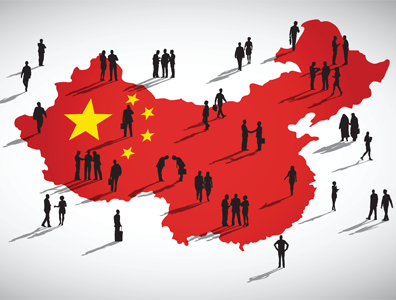Luxury brands have begun to notice this. Rather than putting their financial plans in customary media, ever progressively, huge brands are swinging to these super bloggers as a method for speaking with their intended interest group. Dissimilar to Instagram, on Wechat, bloggers need to put a ton of exertion into inquiring about, composing, scanning for photographs and altering, for an article which is facilitated on the stage – they can’t simply post a photograph. Adherents are welcome to connect with one of kind bits of substance, and have elevated requirements of those they take after. Brands realize that behind bloggers lie a huge number of Chinese millennial; present and potential future clients, who cherish fashion and are anxious to take after their symbol’s strides. Theirs is presently a more hostage readership than that of the conventional fashion productions in China.
Marketing of luxury brands
Luxury fashion brands marketing to China’s prosperous purchasers can probably profit by utilizing the enormous online networking followings of nearby fashion bloggers. But, this system can leave brands with a larger number of inquiries than answers. Venture organization Exane BNP Paribas’ current report, The Shopping Guide: bloggers in China, which names China’s main 10 fashion bloggers, investigates precisely to what degree these influencers can be useful.
The most popular fashion blogger in China is gogoboi. Each article he posts has a huge number of perspectives. His articles for the most part cover fashion styling, and furthermore incorporate fashion-event reports and superstar babble. Other famous bloggers incorporate Mr. Sacks, who concentrates his articles on creator packs; Becky’s Fantasy, a shopping guide; Shiliupo, who focuses on fashion styling and superstar news; and Dipsy, a Vogue writer who posts regular accumulations, fashion shows and big name news.
The main 10 fashion bloggers positioned by Exane BNP Paribas in view of their number of Weibo adherents.
The report shows that because of their unlimited number of supporters, fashion bloggers are similarly valuable or shockingly better than media scope and ad to make buzz in China, not at all like in the West, where bloggers are less compelling for luxury brands contrasted with famous people and fashion media outlets. This is on the grounds that the ascent of fashion bloggers and the improvement of the Chinese luxury market occurred couple. The report clarifies that fashion bloggers “have filled a void on the web in front of luxury / fashion brands and distributers” in teaching Chinese shoppers about various brands.
Bloggers are hitting the way of marketing
Notwithstanding, with regards to really exchanging fame from the fashion bloggers to luxury brands, brands need to focus on more than only a blogger’s number of devotees. Luca Solca, the creator of the report and the head of luxury products at Exane BNP Paribas, said web-based social networking taking after is not an adequate metric to gage a blogger’s esteem. “The quantity of social activities [likes, offers, and comments] and posts is a vastly improved pointer of online networking footing,” he said.
“The genuine “adequacy” of key supposition pioneers (KOLs) additionally gets from their identity, particular written work style, visual style, exceptional aptitudes or level of specialist inside the fashion business,” said Patrice Nordey, the Shanghai-based CEO of advanced initiation organization Velvet Group.
Last trends in investment
Cases of effective joint efforts incorporate Gucci’s turnaround in 2016, which can be said to be a direct result of Chinese fashion bloggers who first got on to the new plans and elevated them to shoppers. Not all matches are flawless however—when Gogoboi assumed control over the Weibo handle of Louis Vuitton amid Paris fashion Week Fall/Winter 2015, Chinese web clients sniffed at Louis Vuitton’s decision as they believed Gogoboi’s style did not fit with the brand picture. In his most recent Weibo crusade for Fendi, the quantity of remarks under his post likewise predominated the normal level of engagement he can create.
What is conceivably the most compelling motivation for brands to be wary about looking for a one-on-one organization with a Chinese fashion blogger is the indistinct relationship amongst deals and influencer marketing. After Gogoboi’s November Fendi crusade, the brand’s parent organization LVMH detailed in its 2016 yearly report that Fendi saw deals development in China’s market. The two occasions might be related; however such relationship does not suggest causation.
Chinese brands are spreading globally
Mr. Sacks’ current coordinated effort with Givenchy is another intriguing case. Transforming WeChat into a social web based business website, Mr. Sacks gave his adherents access to purchase his elite Valentine’s Day version Givenchy “Smaller than normal Horizon” satchels. He revealed that 80 purses were sold out in 12 minutes, yet it stays obscure if such a bewildering accomplishment can be totally credited to his impact or if it’s a consequence of “appetite marketing,” a special procedure utilized by brands to lift clients’ longing to purchase their new items by constraining supply. This procedure has been as often as possible utilized by Chinese brands, for example, tech organization Xiaomi, and has demonstrated effective in rustling up deals temporarily.
Universal luxury brands who wager enormous on China amid the blast years turn out to be carefully imaginative as the financial stoppage and restraint of obvious utilization hit hard benefits.
Further information
- Jingdaily
- Luxury in China
- ChineseTouristagency
- ChinaDaily

